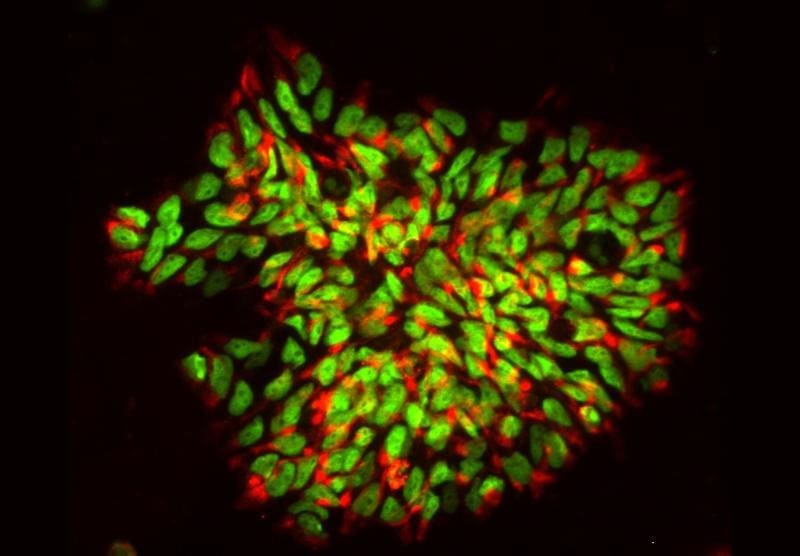Multiple sclerosis: stem cells repair nerve damage
Researchers from the Universities of Cambridge and Innsbruck have shown in a study that induced neural stem cells can repair chronic tissue damage in the central nervous system of mice. The results, published in the journal Brain, suggest that such stem cell-based therapies could be a promising approach for the treatment of progressive multiple sclerosis (MS).
Multiple sclerosis is an autoimmune disease in which the immune system attacks the myelin sheath that protects nerve fibers in the central nervous system. This leads to neurological impairments, especially in the chronic progressive course of the disease when natural remyelination decreases. Current therapies alleviate symptoms but cannot reverse the damage or stop neurodegeneration. New approaches to directly combat the disease mechanisms are urgently needed.

The study investigated the effect of transplanted induced neural stem cells (iNSCs) in a mouse model. These stem cells, which can be obtained from the patient’s own skin or blood cells through cellular reprogramming, developed in the organism into oligodendrocytes, the cells that produce myelin. For the first time, it was shown that these cells can restore the myelin sheath. The study also confirmed the safety of transplants with human iNSCs, a decisive step for future clinical applications. The advantage of autologous transplants lies in the lower risk of immunological rejection.
The results open up new perspectives for the treatment of progressive MS. The research team is now working to further investigate the neuroprotective and anti-inflammatory effects of these stem cells in order to develop therapies that slow down the progression of the disease and protect the brain from further degeneration. These findings could form the basis for innovative treatments that go beyond mere symptom relief.
Original Paper:
Read also:
Diet: Palm oil puts multiple sclerosis patients at risk – MedLabPortal
Editorial office: X-Press Journalistenbû¥ro GbR
Gender note. The personal designations used in this text always refer equally to female, male and diverse persons. Double/triple references and gendered designations are avoided in favor of better readability.




